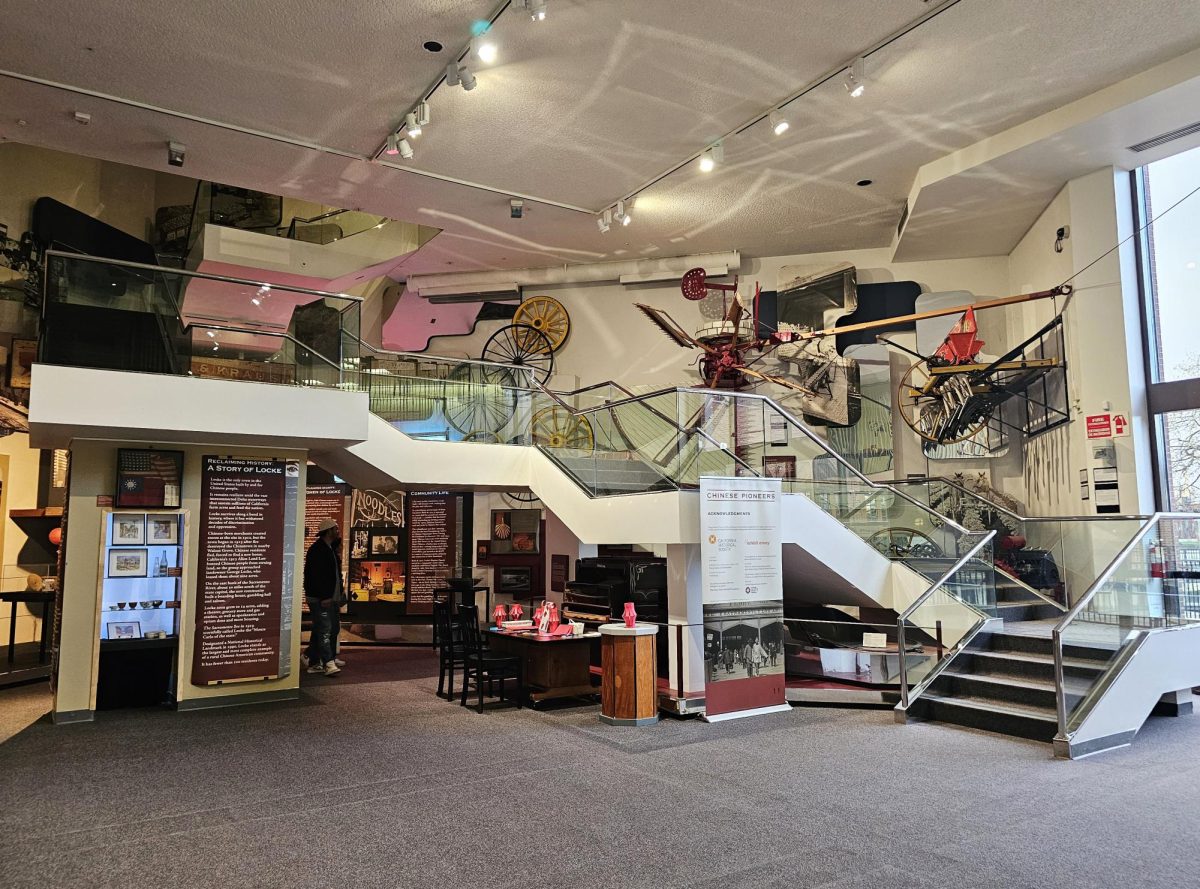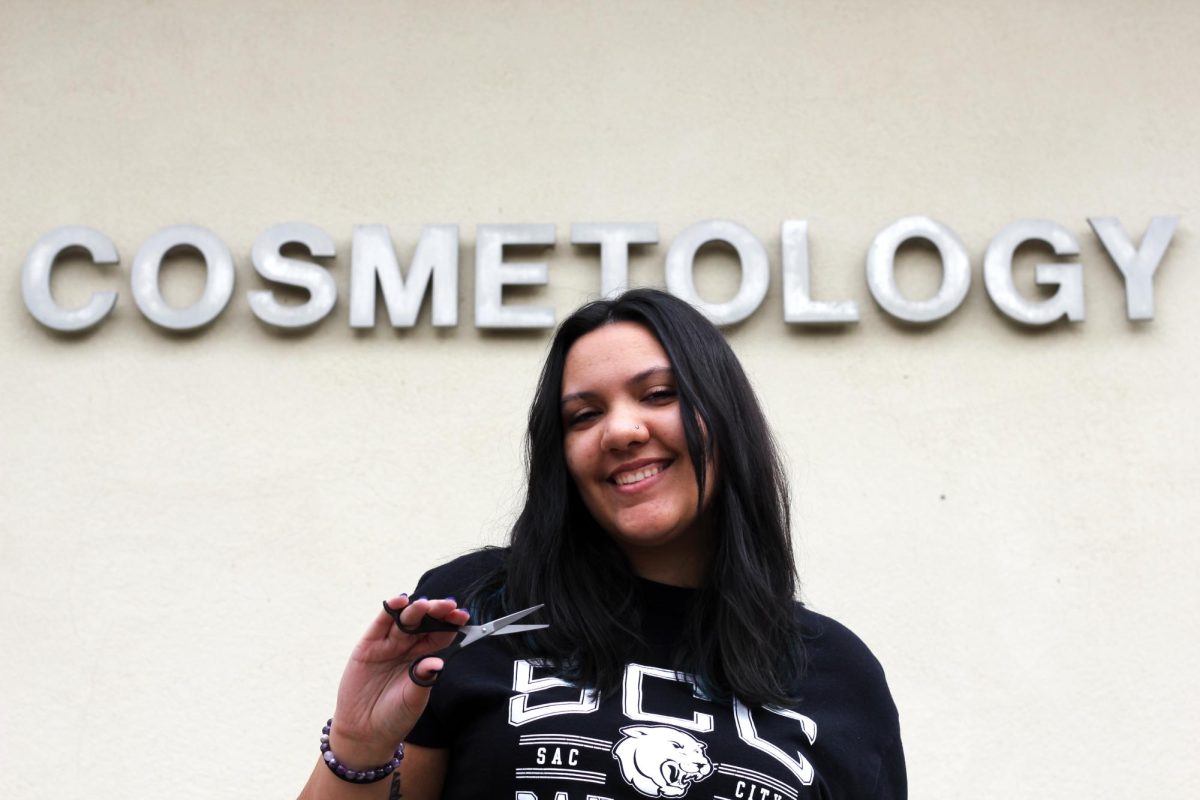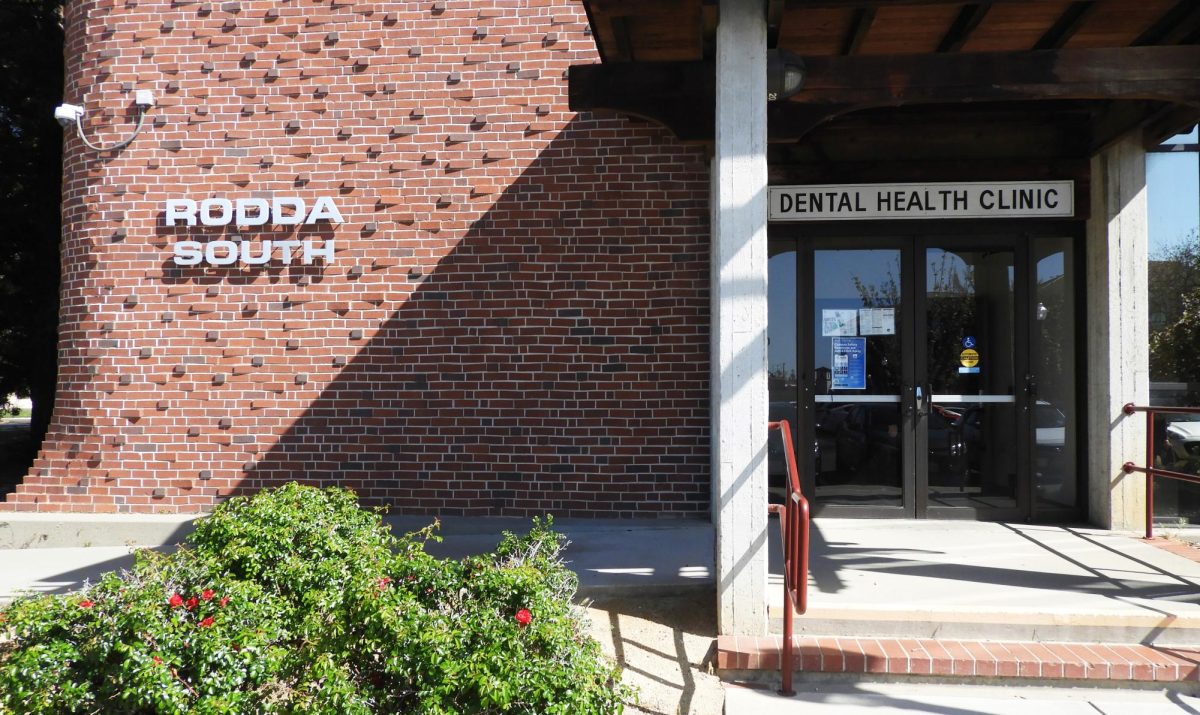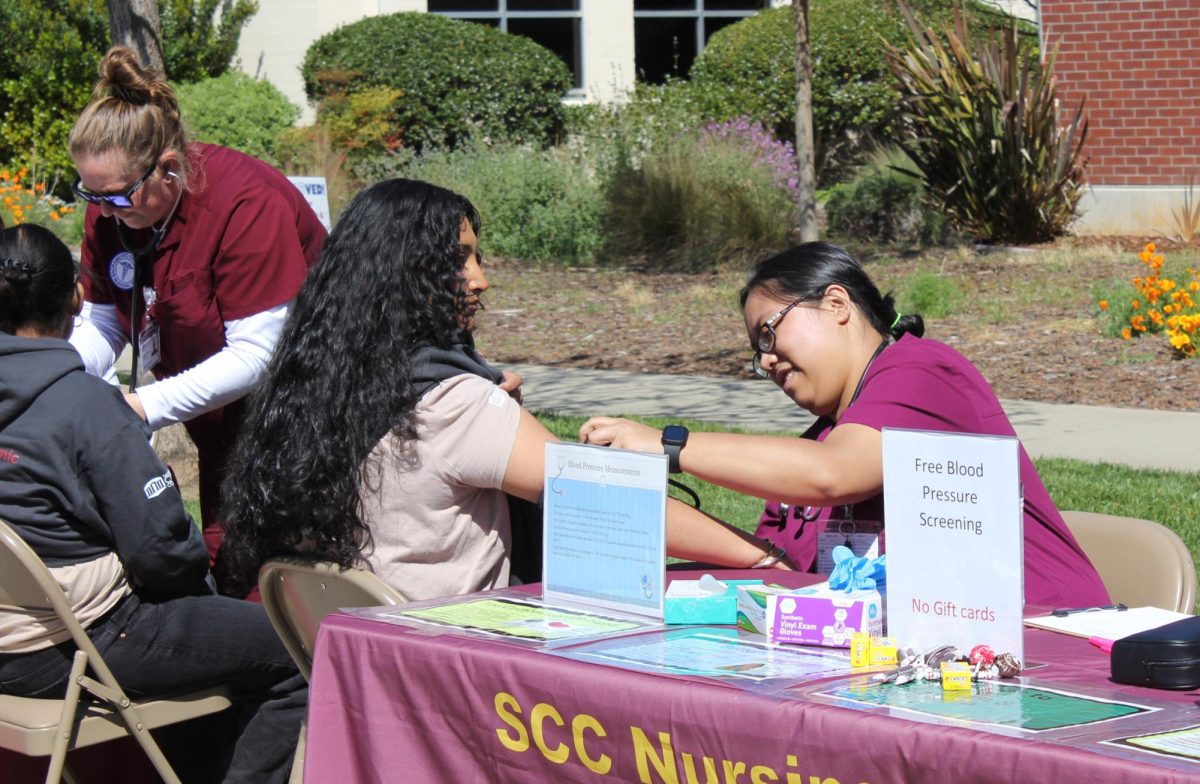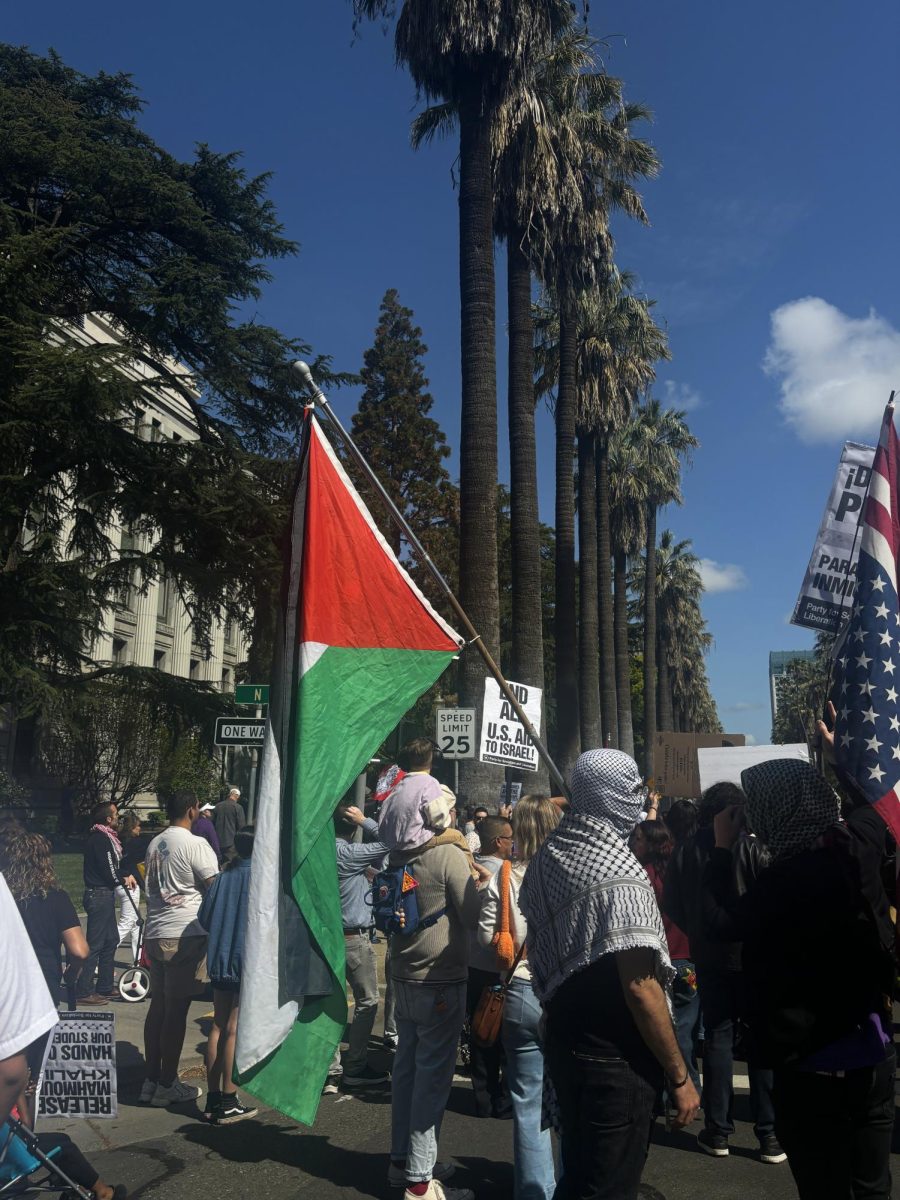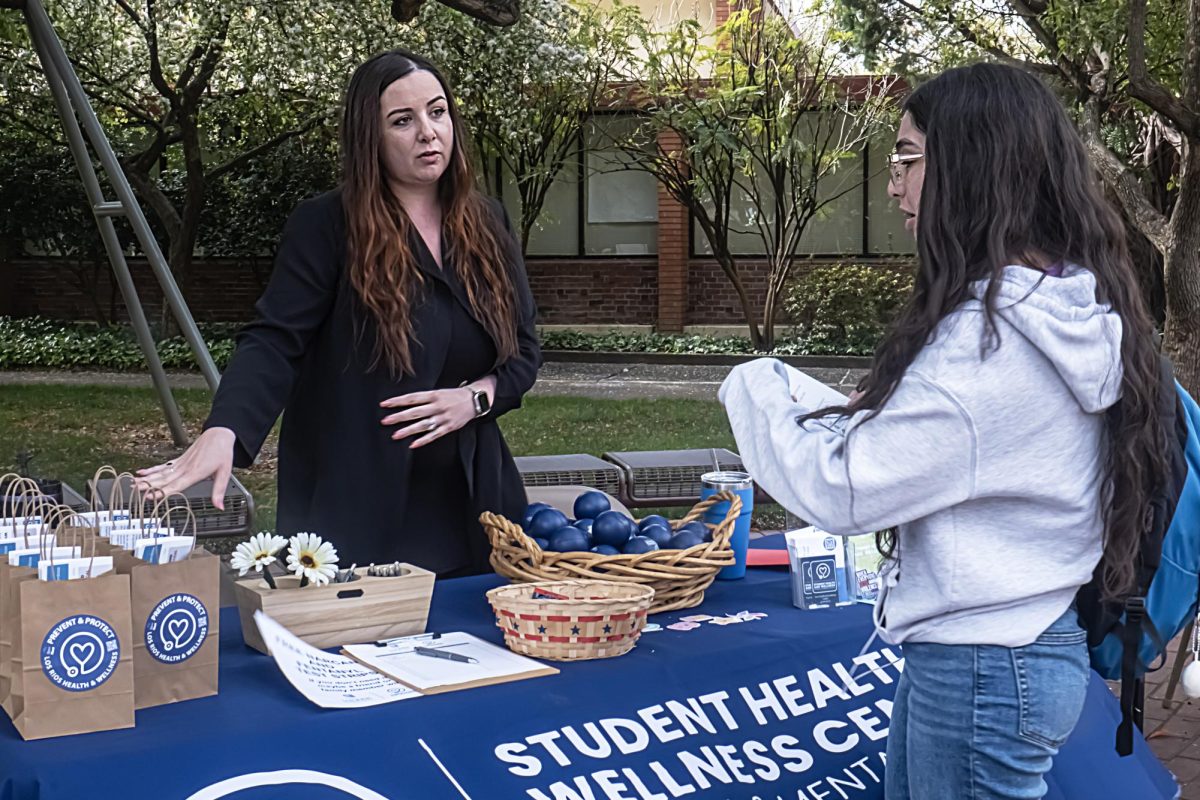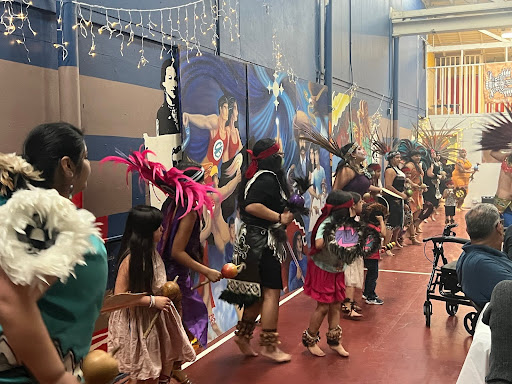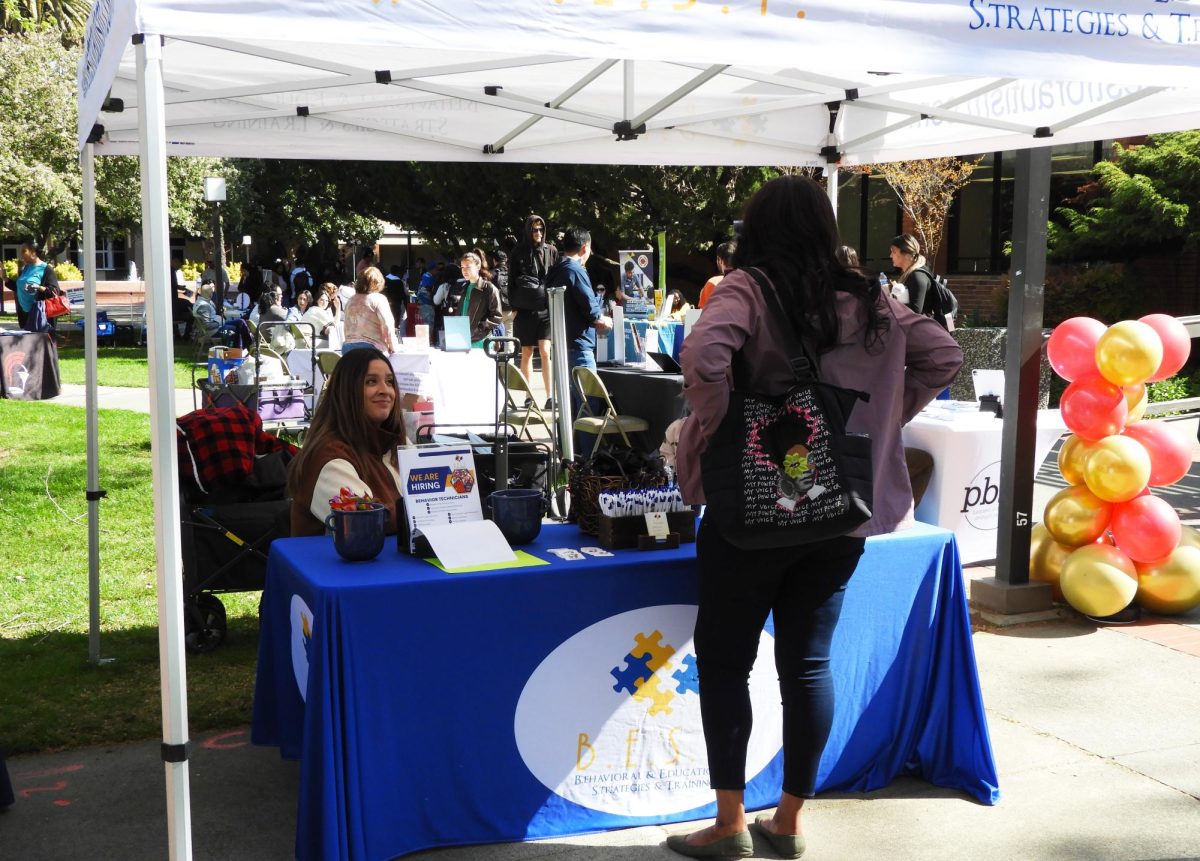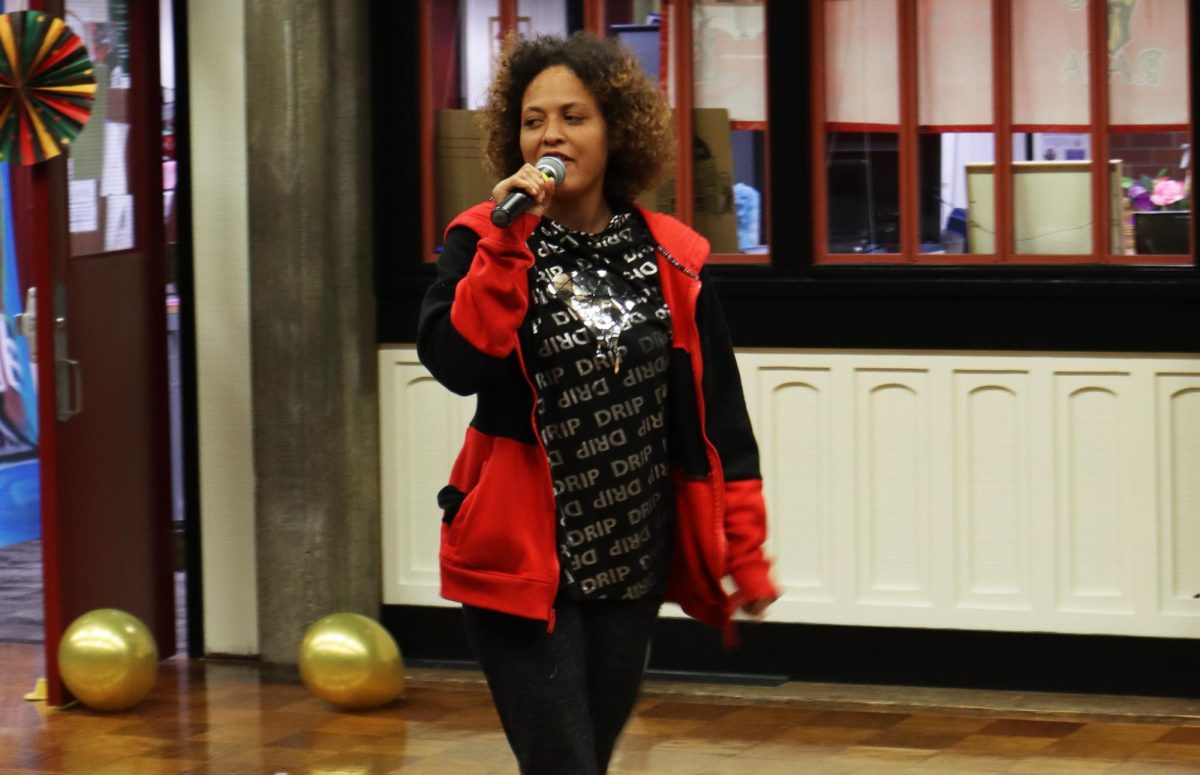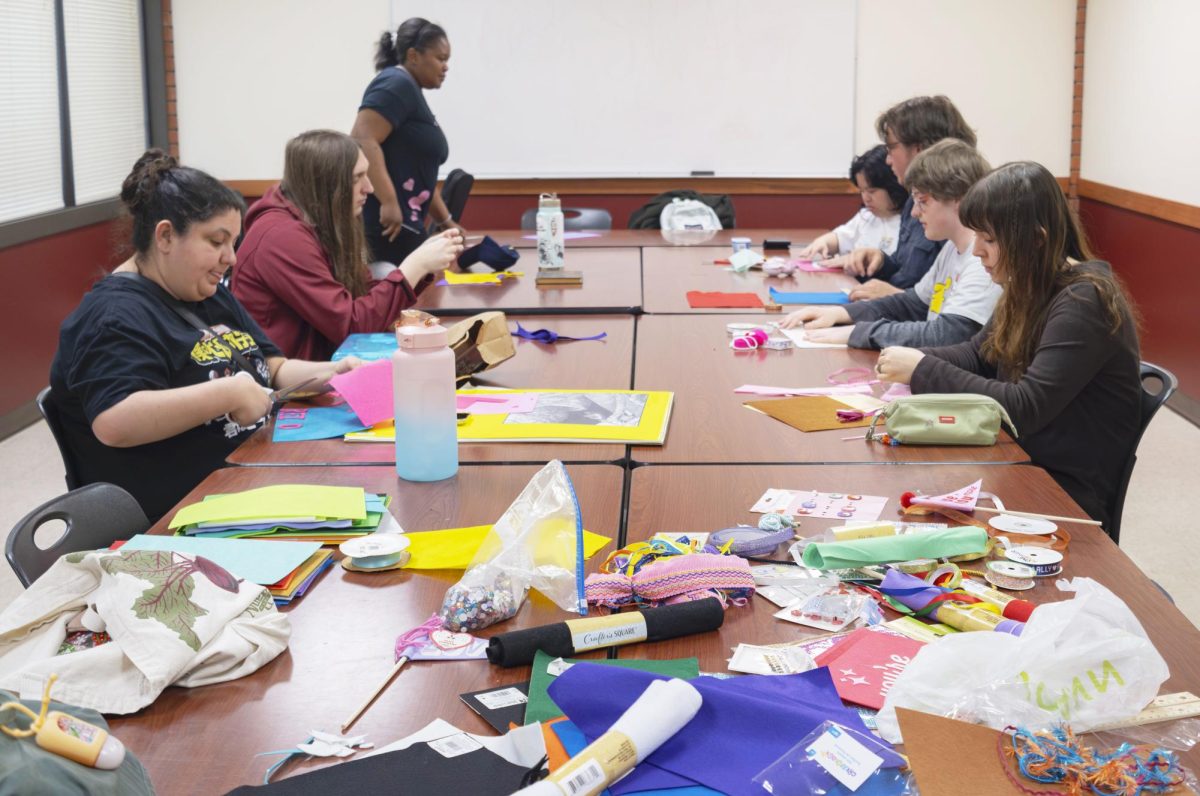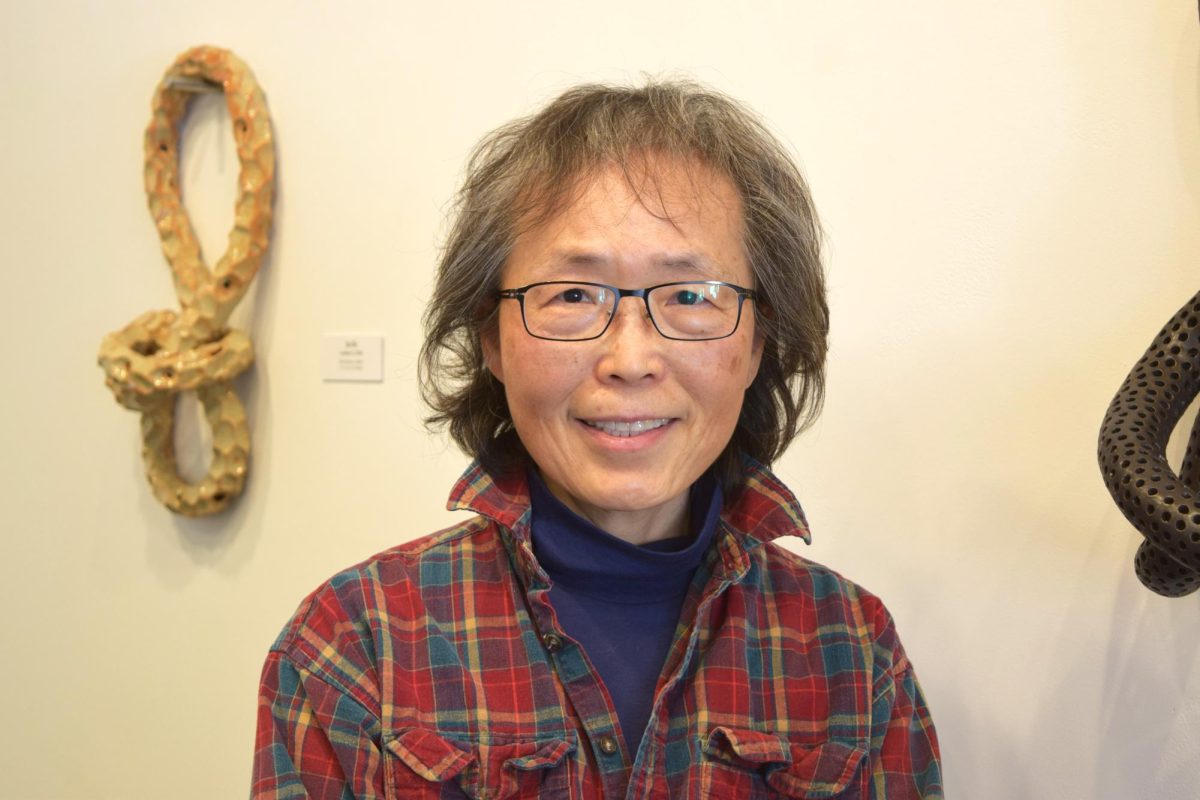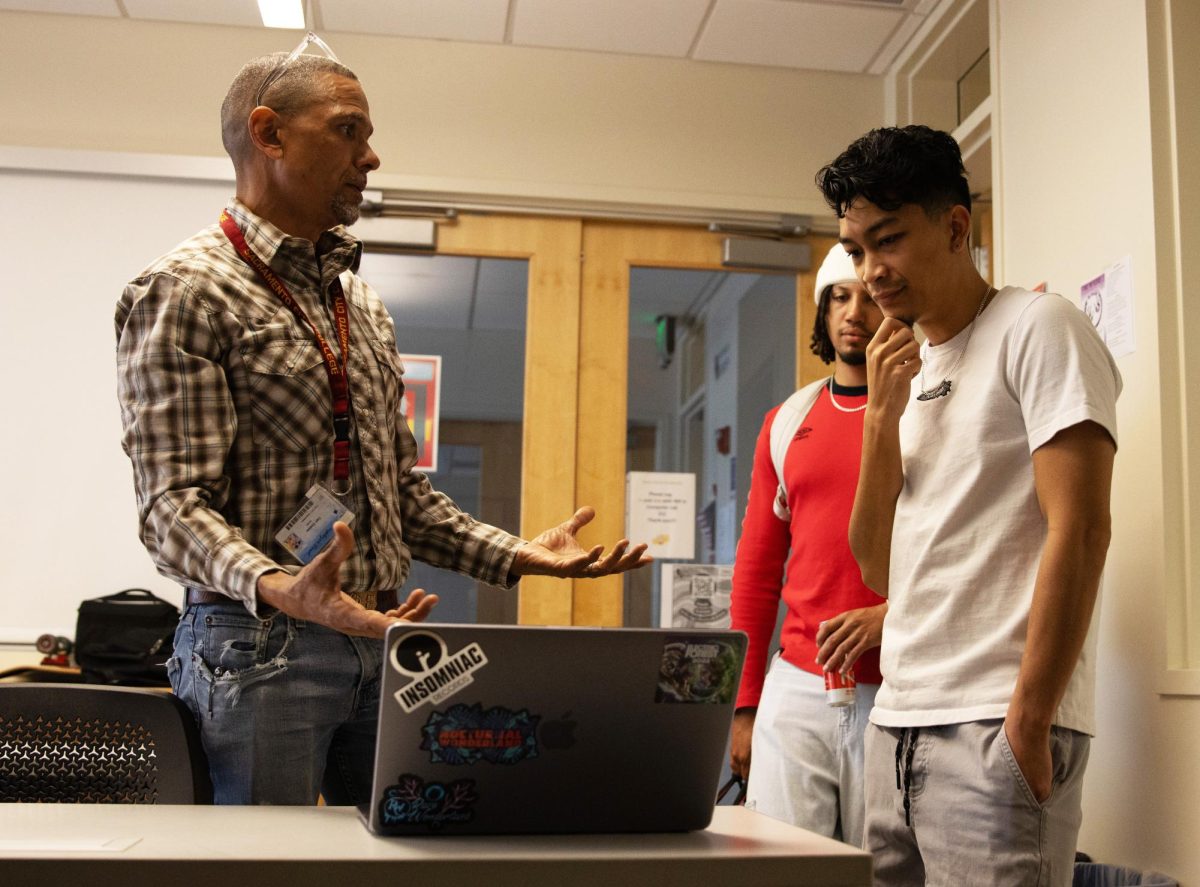Located on the corner of D and 16th streets in Sacramento, the Washington Neighborhood Center is a quiet building. With no signage for the center, the building seems like it has been untouched for quite some time. However, in 2023, the center reopened to welcome people back from the COVID-19 pandemic.
The Washington Neighborhood Center officially opened in 1956 yet offered informal programing since 1952, and is a historic Chicano community center. The center was once a site of Chicano social, art and political activism.
Jocelin Hernandez is the Washington Neighborhood Center’s executive director and stepped into the role post-pandemic. Hernandez has been tasked with the challenge of re-introducing the center to the community and preventing its demise as potential investors looked to redevelop the property.
“[The center] has an incredible history and now in the present day finds itself in a very critical point,” Hernandez said. “After many generations and decades of gentrification that has displaced a lot of the community, we find ourselves at a point where we’re trying to raise awareness of the fact that we need to be able to invest back in the center, or else really risk the building being knocked down and redeveloped into, high-rise apartments or luxury apartments like we see, even across the street here.”
The center houses what is believed to be the oldest Chicano mural in the United States. The mural titled “The Chicano Social Struggle in a Bi-cultural Society” was created by Esteban Villa and The Royal Chicano Air Force.
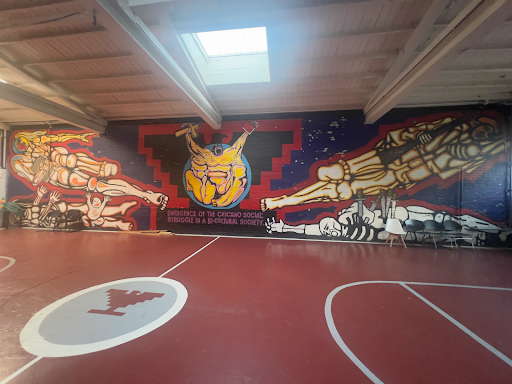
According to historian Tere Romo, “The Washington Neighborhood Center provided $200 for paint and materials. The labor was donated by Villa and his [Sac State] students. This is the first RCAF mural painted in Sacramento and is historically significant as the first known mural in California to use the word ‘Chicano’ as part of its design.”
The Royal Chicano Air Force was founded in Sacramento in 1970 by Villa, Jose Montoya, and Ricardo Favela. It was a Chicano art group that educated people through their art, history and culture. Their art also promoted the group’s beliefs in Chicano rights and supported figures like Cesar Chavez.
Hernandez told the story of the center and the vital role it played in the Chicano movement. Officially established in 1956, the center was founded at the height of the Chicano movement.
“During that time, the Chicano movement in Sacramento was trying to create a space where folks can be able to preserve culture and practice culture as a way of political empowerment,” said Hernandez. “It was also a space that started to organically form as a community was working to fight for self-determination for workers’ rights, for farm workers’ rights.”
In September, community members held a small fundraiser at the Washington Neighborhood Center for Maui residents who were affected by the wildfires that happened in early August.
The damage from the wildfires resulted in people being displaced from their homes and businesses burnt to the ground. The fundraiser was a free event that raised money through charitable donations and raffle tickets available for purchase in exchange for prizes. The event also included a movie night and live music performances.
“People helping people, that’s what we want to make sure that we want to encourage; that, starting from the community, because a lot of the time we can’t just rely on [the] government and system,” said community member Phuong L.B..
“I feel like it is definitely our duty to be in solidarity with one another and to acknowledge when and where we can support one another,” said Hernandez. “We’re lucky to have this building so why not, you know, especially when rents’ are going up.”
In the 1960s, the center was once known as the Washington Elementary Center, and was home to a free breakfast program inspired by the Black Panther Party, according to Hernandez.
The Black Panther Party was an organization by African Americans founded in Oakland, California during the civil rights movement. Initially formed to protect Black people from police brutality, as the party expanded it demanded reparations, the release of Back prisoners, and the arming of Black people. The Black Panther Party later founded social programs such as the Free Breakfast for Children program, inspiring the federal government to follow suit.
“The Chicano women here also started to do a free breakfast program for the children and also in high schools throughout,” Hernandez said. “It was also an act of solidarity because it wasn’t only for the Chicano Latino youth but also for the Vietnamese black youth as well that lived in the neighborhood. So I want to honor that again and bring it back. You know that love right that’s been there.”
The Washington Neighborhood Center has a lot of history, as reflected by the building. Since its establishment, the building has not been upgraded and has retained much of its old infrastructure.
On Oct. 19, 2023, the center held its first major event since COVID called Legados y Futuros. The fundraising event for the center welcomed community members, inviting them to check out the center with an art gallery and food.
Artist Junior Navarro participated in the art gallery with his collection of paintings inspired by his Mexican heritage. “I am like the third or fourth generation of artists in my family, and I wanted to continue that because I really like it,” said Navarro, adding, “This is my first time here, I wanted to help the Latino community and participate in the event.”
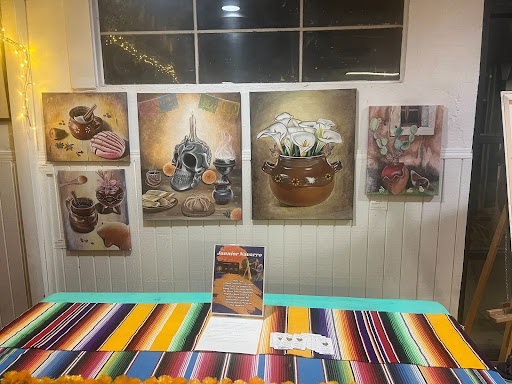
The program started with a land acknowledgment done by Michael Rameriez, a representative of the Native American tribes of Sacramento, and was followed by a dance performance. Afterward, guest speakers discussed the history of the center and called on attendees to donate to fundraise for its much-needed rehabilitation efforts.
Members also gathered at the event to celebrate the reimbursable grant of $1.8 million the Washington Neighborhood Center received from Sacramento County Supervisor Phil Serna and the county. “The hard truth about it is that we do not have a million dollars to spend. So today is really a welcome back for the community and also an invitation to be part of this journey for us to be able to access that money,” said Hernandez.
In her speech, Hernandez lists the infrastructure upgrades that the center requires. The center plans to use $1 million to fix the roof that leaks near the historic mural. The center also plans to install air conditioning, meet accessibility standards, bring the building up to fire code and upgrade plumbing infrastructure.
Currently, the center only uses a fraction of its facilities. With the grant, the center hopes to make use of all the facilities by re-launching expanded programming. For example, an ethnic studies library, art store and studio, screen printing workshop, commercial kitchen, computer lab, homework center and wellness gym.
The Washington Neighborhood Center is currently accepting donations. The center will also be having a toy drive event from 12 p.m. to 5 p.m. on Dec. 20, 2023, and is accepting volunteers.
“The center has done so much for us … we do not have the luxury to let it close down,” said Hernandez, “We need to understand that the fight is not over.”
















